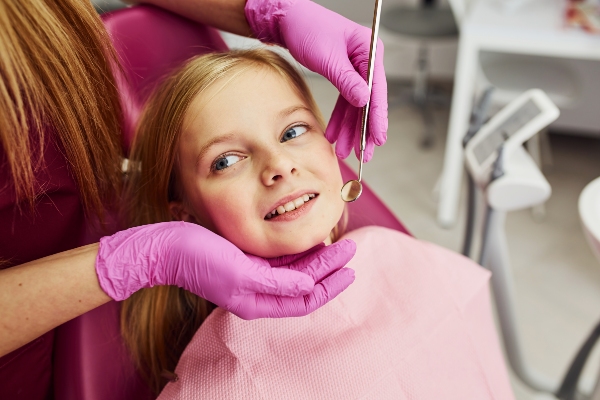 One of the most important things a pediatric dentist does is teach children's tooth care to children and their parents. Children should start seeing a dentist within six months of their first tooth eruption or by their first birthday. These visits should continue once every six months so dentists can catch oral health problems early and educate parents and children on proper oral care.
One of the most important things a pediatric dentist does is teach children's tooth care to children and their parents. Children should start seeing a dentist within six months of their first tooth eruption or by their first birthday. These visits should continue once every six months so dentists can catch oral health problems early and educate parents and children on proper oral care.
Pediatric dentists are skilled teachers
Pediatric dentists are equipped with excellent tools when teaching children's tooth care. Pediatric dentists are ADA-recognized (American Dental Association) specialists in dental care for infants, toddlers, children, teens, and those with special needs. This means that after dental school, these dentists complete a two- to three-year residency in pediatric dental care.
Pediatric dentists know they play an important role in forming a child's oral health habits and attitudes. Therefore, besides keeping children comfortable at the dentist, these practitioners are skilled at making learning about children's tooth care fun. Instilling enthusiasm for dental health at an early age is an important part of ensuring children develop good dental care practices that they carry into their teen years and beyond.
Children’s tooth care for parents
The parents are initially responsible for the oral health care of their children. Though newborns and infants do not yet have teeth, it is still important to care for their gums. Pediatric dentists suggest gently cleaning a baby's gums with a clean washcloth or gauze pad after feeding. This practice can also make little ones more comfortable going to the dentist when it is time.
The first dental visit should happen within six months of the eruption of the first tooth or by the child's first birthday. The child will likely not be ready to start caring for their teeth at these first appointments. Therefore, pediatric dentists can advise parents on properly caring for their infant or toddler's gums and newly emerging teeth. They can also discuss habits to avoid, such as excessive thumb-sucking and letting a child sleep with a bottle.
Children’s tooth care for children
As children grow to an age where they can start understanding how to care for their own teeth, a pediatric dentist's skill becomes particularly important. They cannot just relay information as they can with adults. Teaching children takes an extra level of effort and knowledge of child psychology.
After creating a strong and comforting rapport with a child, they teach dental health in a way that is interactive and engaging for the child. Many pediatric dentists employ fun visual aids, pictures, and videos to spark children's interest in dental hygiene. Some may use simple games and activities to teach dental care basics. Additionally, pediatric dentists tend to use positive reinforcement, such as little rewards and prizes for keeping up with dental care at home. In addition to creating a fun learning environment in the dentist's office, a pediatric dentist can advise parents on continuing fun and effective dental education at home.
Pediatric dentists are educators in children’s tooth care
Our pediatric dentistry team partners with parents in educating their children on oral health care. We create a comfortable and fun environment for children to get the dental care they need and learn the skills they need to keep their teeth healthy. Call today to learn more about how we can help teach children's tooth care.
Request an appointment or call Fullerton Orthodontics & Children's Dentistry at 714-459-8060 for an appointment in our Fullerton office.
Related Posts
Baby root canals often induce fear and anxiety in parents because of the reputation of the procedure. However, technology has come a long way in making the procedure straightforward and reliable. Additionally, baby root canals are only advised when absolutely necessary! Continue reading to find out more.Below is a quick overview of how baby root…
As parents, we like to think that we can help our kids learn what they need to know, but when it comes to proper oral hygiene habits, there is no one better qualified than a children’s dentist. If you do not already have one for your kids, it might be a good idea to find…
You and the children’s dentist can help your child achieve the highest level of dental health. Visiting the dentist will mean getting regular cleanings and oral inspections. If there are dental issues, the dentist can treat them right away. Here are the five benefits that you can enjoy from having regular dental visits with your…
